New Resident At Group Home Arrested For Trying To Kill A Cat And Assaulting Landlord's Wife
A cat owner was so close to taking justice into her own hands when a random roommate stole and tried to kill her pet. The OP was new to the city, having just recently moved out of her family's home.
She had no choice but to stay in a group home for people with disabilities while her disability payments were sorted out. OP was doing well until another woman moved in.
Practically everyone in the group home disliked the newcomer. OP guessed that this new resident was suffering from a type of mental illness and that she wasn't on medication.
Their new roommate talked to herself late into the night. A lot of the residents' possessions went missing, and the newcomer was the prime suspect.
She tried to get OP's boyfriend arrested by accusing him of threatening her with a gun. She seemed to target OP and anyone adjacent to her.
This meant OP's cat, Smokey, was in danger. The newcomer liked Smokey and asked OP to sell him to her.
Her boyfriend said OP's pets were like children to her. They rejected her offer to buy the cat, which the newcomer didn't appreciate.
OP's boyfriend overheard the newcomer threatening to kill Smokey. OP put the cat on a leash and tied him next to where she slept to ensure the woman wouldn't steal him in the dark.
The newcomer took advantage of OP's deep sleep due to her insomnia medication and stole Smokey
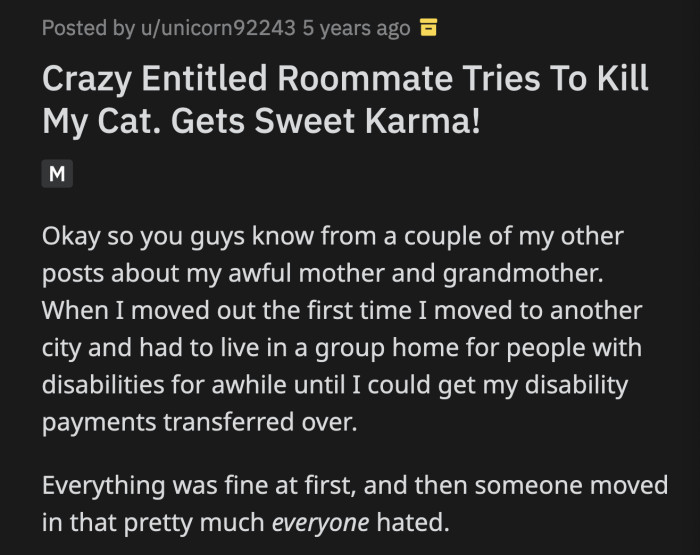
OP woke up, and her cat just wasn't there. The newcomer denied any knowledge about it but refused to meet OP's eyes.
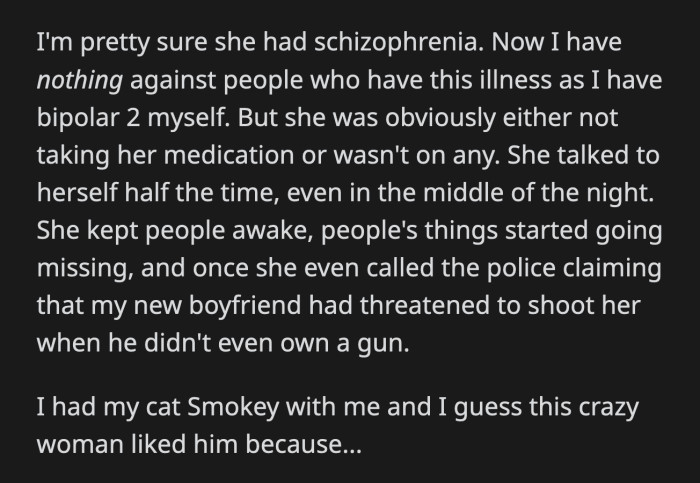
OP later got a call that Smokey was found. He was tied to a car and dragged down the street. Everyone in the group home was horrified for OP and Smokey.
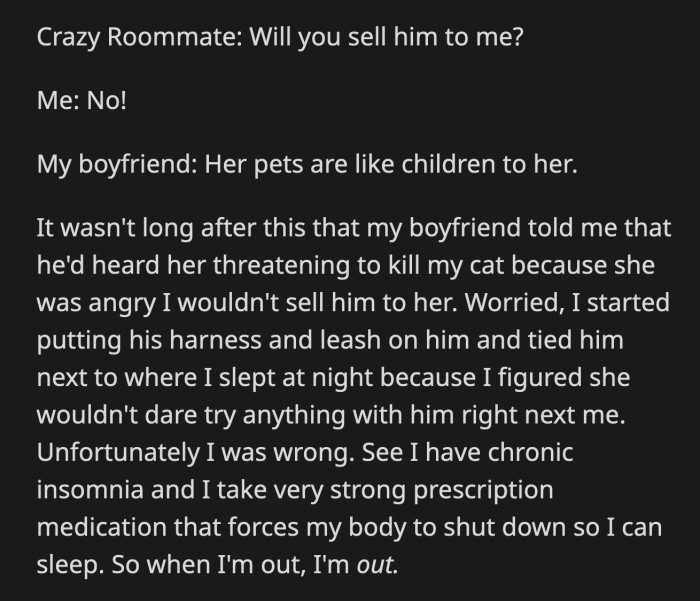
The aggressive behavior exhibited by the new resident may be indicative of underlying psychological issues, such as impulse control disorders. Research indicates that individuals with such disorders often struggle with managing their emotions and behaviors, leading to violent outbursts and difficulties in social situations.
Dr. Russell Barkley, a clinical psychologist, emphasizes that impulsivity can stem from neurodevelopmental issues, making it crucial to address these problems through proper therapeutic interventions.
Psychological Safety in Shared Living Spaces
Creating a psychologically safe environment is essential in group homes to encourage positive interactions. Studies show that when residents feel safe and respected, their overall well-being improves, leading to lower incidences of negative behaviors.
Clinical psychologists advocate for establishing clear house rules and conflict resolution protocols to ensure that all members feel heard. This proactive approach can significantly enhance community dynamics and promote healthier relationships among residents.
Understanding Aggression in Residential Settings
Aggressive behaviors in group homes can often be traced back to underlying mental health issues and trauma histories.
Research by the University of Michigan indicates that individuals with histories of trauma are more likely to exhibit aggression as a coping mechanism.
Such behaviors may arise from feelings of powerlessness or attempts to regain control in a chaotic environment.
They pooled their money to pay for his medical needs. They didn't have enough proof to report the newcomer to the police.

OP kept a broken broomstick from then on to let the woman know not to go near Smokey. Eventually, the woman was arrested and kicked out of the group home for throwing a rock at their landlord's wife.
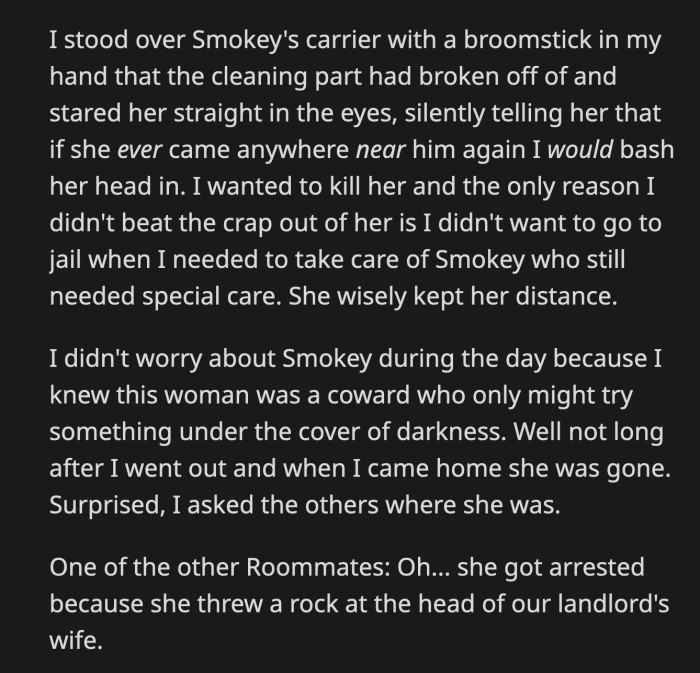
She was placed in a mental facility. They also found the missing belongings of the residents in her possessions. OP pettily swiped one of her gift cards as a small act of revenge for what happened to Smokey.

Understanding Group Dynamics
Group homes often serve as microcosms of society, revealing how interpersonal relationships can influence behavior. According to social psychology research, group dynamics can significantly impact individual actions, sometimes leading to conformity or aggression.
Studies have shown that individuals in group settings may engage in hostile behavior when they feel threatened or excluded, highlighting the importance of fostering a supportive environment to mitigate conflict.
According to a study published in the Journal of Abnormal Psychology, residents in group homes often struggle with emotional regulation, leading to impulsive or aggressive outbursts.
Understanding these triggers can aid staff in developing strategies to de-escalate conflicts and promote a safer living environment.
Unfortunately, Smokey ran away not long after that. OP had no idea where he went, but he never fully recovered from his injuries.
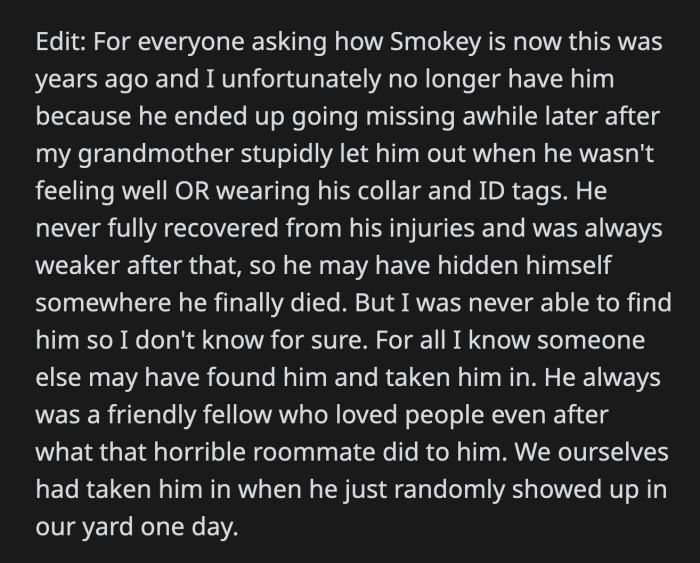
Smokey didn't deserve what happened to him. I'm kind of glad OP didn't get into a physical altercation with the woman.

A person who hurts animals clearly needs help or jail time
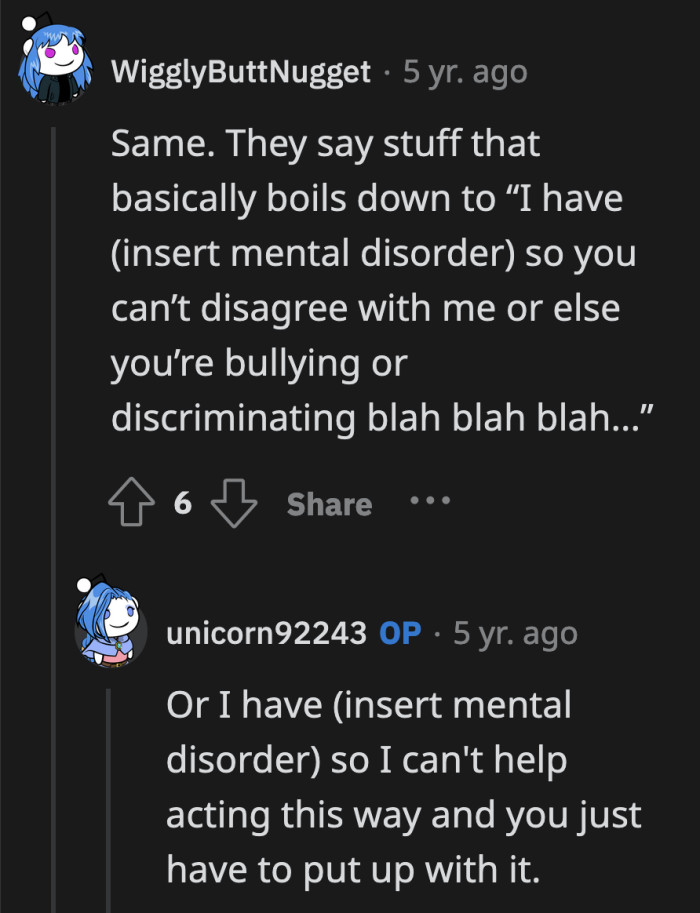
The Role of Empathy in Conflict Resolution
Empathy plays a crucial role in resolving conflicts, especially in communal living situations like group homes. Research published in the Journal of Personality and Social Psychology indicates that fostering empathy can lead to more harmonious relationships among residents.
By encouraging open dialogue and understanding others’ perspectives, residents can cultivate a sense of community, which, as studies show, often decreases incidents of aggression and promotes cohesion.
The Importance of Structured Environments
Structured environments can significantly reduce aggressive incidents in group homes.
Establishing clear routines and expectations helps individuals feel more secure and less likely to act out.
Research has shown that when residents know what to expect, they can better manage their emotions and behaviors.
It was foolish of her to assault a person after being suspected of animal cruelty. She was on thin ice, yet she still chose to do something reckless.

OP taking the newcomer's gift card must have tasted like sweet revenge

I'm glad she got the help she needed, but she can go kick rocks. Smokey deserved better.
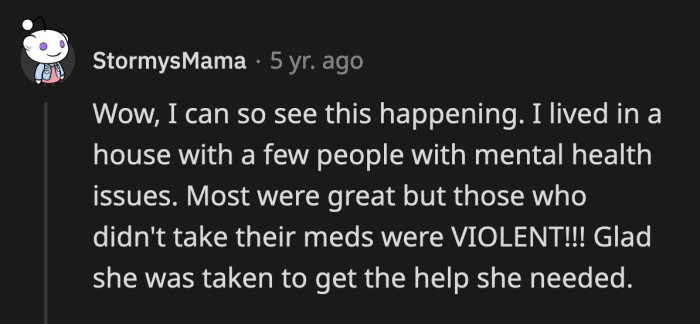
The case of the cat incident highlights the need for effective communication strategies in group homes. Research suggests that implementing structured communication methods, such as Nonviolent Communication (NVC), can help residents express their feelings and needs without escalating tensions.
According to Dr. Marshall Rosenberg, founder of NVC, this approach fosters understanding and reduces conflicts, ultimately leading to a more peaceful living environment.
Implementing trauma-informed care practices can also be beneficial in these settings.
By understanding the impact of trauma on behavior, staff can approach situations with empathy and support.
This approach not only helps in mitigating aggressive behavior but also fosters a sense of safety and trust among residents.
OP was right to restrain herself from retaliating against the woman who hurt her cat. It must have taken an incredible amount of self-control not to actively seek revenge against a person who deliberately inflicted pain on an innocent animal.
Psychological Analysis
This incident illustrates the complex challenges faced in group home settings, where aggression can often be a manifestation of deeper emotional issues. It's critical for staff to understand the underlying causes of such behaviors, as this awareness can foster a more supportive environment that encourages healing and regulation.
Analysis generated by AI
Analysis & Alternative Approaches
Addressing aggressive behaviors in group homes requires a multifaceted approach that considers individual histories and current environmental factors.
Research consistently shows that trauma-informed care and structured environments can lead to better outcomes for residents.
Ultimately, creating a safe and supportive atmosphere is essential for healing and growth.
Psychological Analysis
This situation reflects the serious challenges in group homes, where residents may struggle with mental health issues and trauma. The newcomer's aggressive behaviors, such as stealing and targeting the OP, could be an attempt to regain control in an unfamiliar environment. It's essential for staff in such settings to understand these triggers in order to create a safer and more supportive living environment.
Analysis generated by AI
Understanding the Deeper Patterns
Addressing behavioral issues in group home settings requires a multifaceted approach that includes understanding psychological principles and implementing effective communication strategies. Studies consistently show that fostering empathy and creating a safe environment can lead to significant reductions in conflict and aggression.
As research indicates, prioritizing mental health and encouraging open dialogue are vital in transforming communal living situations into supportive communities. Ultimately, these interventions can greatly enhance the quality of life for all residents involved.



